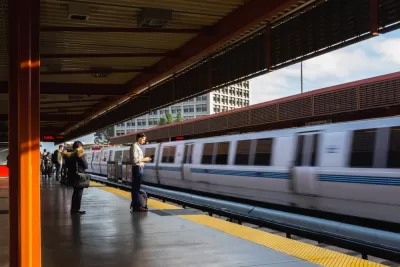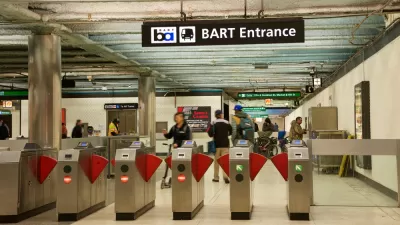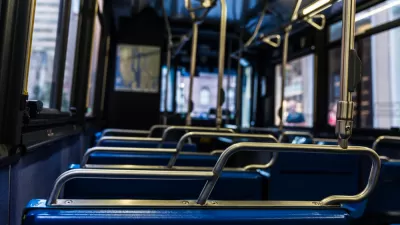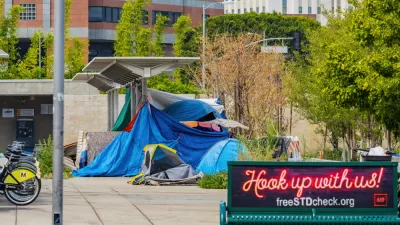U.S. public transit agencies haven’t yet seen the bottom of a pandemic-induced fiscal crisis.

S&P Global Ratings dropped Bay Area Rapid Transit’s (BART) credit rating two notches last week. The new credit rating of A+ will make it more expensive for BART to borrow money—all while facing an increasingly dire fiscal cliff.
An article by Skylar Woodhouse for Bloomberg explains that BART might not be the only transit agency facing credit rating adjustments. BART is” one of several public-transit agencies put on notice by S&P, including the San Francisco Municipal Transportation Agency and DC’s Washington Metropolitan Area Transit Authority,” according to Woodhouse.
“New debt sales by public transit systems are already depressed. Municipal-bond issuance for mass transportation totaled about $4.3 billion this year, down about 44% from the same period in 2022 and the lowest since 2018, according to Refinitiv data as of May 25,” adds Woodhouse.
The fiscal plight of BART and public transit more generally was also the subject of an on-air segment on WBUR’s Here and Now.
[Update: news broke late last night that California Governor Gavin Newsom and Democratic legislative leaders had stuck a deal to prevent service cuts on BART and other transit systems in the state. More coverage of that news to come.]
FULL STORY: US Public Transit Systems Face Credit Downgrades as Riders Stay Away

Study: Maui’s Plan to Convert Vacation Rentals to Long-Term Housing Could Cause Nearly $1 Billion Economic Loss
The plan would reduce visitor accommodation by 25,% resulting in 1,900 jobs lost.

North Texas Transit Leaders Tout Benefits of TOD for Growing Region
At a summit focused on transit-oriented development, policymakers discussed how North Texas’ expanded light rail system can serve as a tool for economic growth.

Why Should We Subsidize Public Transportation?
Many public transit agencies face financial stress due to rising costs, declining fare revenue, and declining subsidies. Transit advocates must provide a strong business case for increasing public transit funding.

How to Make US Trains Faster
Changes to boarding platforms and a switch to electric trains could improve U.S. passenger rail service without the added cost of high-speed rail.

Columbia’s Revitalized ‘Loop’ Is a Hub for Local Entrepreneurs
A focus on small businesses is helping a commercial corridor in Columbia, Missouri thrive.

Invasive Insect Threatens Minnesota’s Ash Forests
The Emerald Ash Borer is a rapidly spreading invasive pest threatening Minnesota’s ash trees, and homeowners are encouraged to plant diverse replacement species, avoid moving ash firewood, and monitor for signs of infestation.
Urban Design for Planners 1: Software Tools
This six-course series explores essential urban design concepts using open source software and equips planners with the tools they need to participate fully in the urban design process.
Planning for Universal Design
Learn the tools for implementing Universal Design in planning regulations.
Ascent Environmental
Borough of Carlisle
Institute for Housing and Urban Development Studies (IHS)
City of Grandview
Harvard GSD Executive Education
Toledo-Lucas County Plan Commissions
Salt Lake City
NYU Wagner Graduate School of Public Service





























